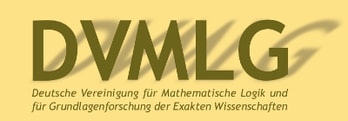TDPHIMA
Text Driven Approaches to the Philosophy of Mathematics
Prague, 07. August 2019
Contributed symposium to the CLMPST 2019 (Prague, 05. – 10. August 2019)
Prague, 07. August 2019
Contributed symposium to the CLMPST 2019 (Prague, 05. – 10. August 2019)
The next iteration takes place in September 1 - 3, 2022, for more details see here:
https://www.uni-due.de/tdphima2/
https://www.uni-due.de/tdphima2/
About THE Topic
DText is a crucial medium to transfer mathematical ideas, agendas and results among the scientific community and in educational context. This makes the focus on mathematical texts a natural and important part of the philosophical study of mathematics. Moreover, it opens up the possibility to apply a huge corpus of knowledge available from the study of texts in other disciplines to problems in the philosophy of mathematics.
This symposium aims to bring together and build bridges between researchers from different methodological backgrounds to tackle questions concerning the philosophy of mathematics. This includes approaches from philosophical analysis, linguistics (e.g., corpus studies) and literature studies, but also methods from computer science (e.g., big data approaches and natural language processing), artificial intelligence, cognitive sciences and mathematics education. (cf. Fisseni et al. to appear; Giaquinto 2007; Mancosu et al. 2005; Schlimm 2008; Pease et al. 2013).
The right understanding of mathematical texts might also become crucial due to the fast successes in natural language processing on one side and automated theorem proving on the other side. Mathematics as a technical jargon or as natural language, which quite reach structure, and semantic labeling (via LaTeX) is from the other perspective an important test-case for practical and theoretical study of language.
Hereby we understand text in a broad sense, including informal communication, textbooks and research articles.
Bibliography:
B. Fisseni, B. Schröder, D. Sarikaya and M. Schmitt. How to frame a mathematician. Modelling the cognitive background of proofs. In: S. Centrone, D. Kant and D. Sarikaya (Eds.): Reflections on the Foundations of Mathematics: Univalent Foundations, Set Theory and General Thoughts. Synthese Library, Springer, Berlin (To Appear 2019).
Giaquinto, Marcus: Visual thinking in mathematics. An epistemological study. Oxford: Oxford University Press (2007).
Mancosu, Paolo; Jørgensen, Klaus F.; Pedersen, Stig A. (Eds): Visualization, explanation and reasoning styles in mathematics. Dordrecht, Norwell, MA: Springer (Synthese library, 327) (2005).
Pease, Alison; Guhe, Markus; Smaill, Alan: “Developments in research on mathematical practice and cognition”, Topics in cognitive science 5(2) (2013), pp. 224–230.
Schlimm, Dirk: “Two Ways of Analogy. Extending the Study of Analogies to Mathematical Domains”, Philosophy of Science 75(2) (2008), pp. 178–200.
This symposium aims to bring together and build bridges between researchers from different methodological backgrounds to tackle questions concerning the philosophy of mathematics. This includes approaches from philosophical analysis, linguistics (e.g., corpus studies) and literature studies, but also methods from computer science (e.g., big data approaches and natural language processing), artificial intelligence, cognitive sciences and mathematics education. (cf. Fisseni et al. to appear; Giaquinto 2007; Mancosu et al. 2005; Schlimm 2008; Pease et al. 2013).
The right understanding of mathematical texts might also become crucial due to the fast successes in natural language processing on one side and automated theorem proving on the other side. Mathematics as a technical jargon or as natural language, which quite reach structure, and semantic labeling (via LaTeX) is from the other perspective an important test-case for practical and theoretical study of language.
Hereby we understand text in a broad sense, including informal communication, textbooks and research articles.
Bibliography:
B. Fisseni, B. Schröder, D. Sarikaya and M. Schmitt. How to frame a mathematician. Modelling the cognitive background of proofs. In: S. Centrone, D. Kant and D. Sarikaya (Eds.): Reflections on the Foundations of Mathematics: Univalent Foundations, Set Theory and General Thoughts. Synthese Library, Springer, Berlin (To Appear 2019).
Giaquinto, Marcus: Visual thinking in mathematics. An epistemological study. Oxford: Oxford University Press (2007).
Mancosu, Paolo; Jørgensen, Klaus F.; Pedersen, Stig A. (Eds): Visualization, explanation and reasoning styles in mathematics. Dordrecht, Norwell, MA: Springer (Synthese library, 327) (2005).
Pease, Alison; Guhe, Markus; Smaill, Alan: “Developments in research on mathematical practice and cognition”, Topics in cognitive science 5(2) (2013), pp. 224–230.
Schlimm, Dirk: “Two Ways of Analogy. Extending the Study of Analogies to Mathematical Domains”, Philosophy of Science 75(2) (2008), pp. 178–200.
TALKS
- Anna Steensen (ETH Zurich): Semiotic analysis of Dedekind’s arithmetical strategies
- Bernhard Fisseni (IDS): Perspectives on Proofs
- Marcos Cramer (TU Dresden), Bernhard Fisseni (IDS), Deniz Sarikaya (Univ. Hamburg) and Bernhard Schröder (Univ. Duesburg-Essen): Bridging the Gap Between Proof Texts and Formal Proofs Using Frames and PRSs.
- Karl Heuer (TU Berlin) and Deniz Sarikaya (Univ. Hamburg): Text-driven variation as a vehicle for generalisation, abstraction, proofs and refutations: an example about tilings and Escher within mathematical education.
- Mikkel Willum Johansen (Univ. Copenhagen): Entering the valley of formalism: Results from a large-scale quantitative investigation of mathematical publications
- Juan Luis Gastaldi (Univ. Paris-Diderot) and Luc Pellissier (IRIF): A structuralist framework for the automatic analysis of mathematical texts.
- Fanner Stanley Tanswell (Univ. Loughborough) and Matthew Inglis (Univ. Loughborough): Studying Actions and Imperatives in Mathematical Texts.
- Juan Pablo Mejía-Ramos (Rutgers Univ.) and Matthew Inglis (Univ. Loughborough): Using linguistic corpora to understand mathematical explanation.
Organized by
Funded by
By the DVMLG: Deutsche Vereinigung für Mathematische Logik und für Grundlagenforschung der Exakten Wissenschaften and the GWP: Gesellschaft für Wissenschaftsphilosophie [The German Society for Philosophy of Science]


